Rousseau: Where Does Social Inequality Come From?
Interview by Richard Marshall.
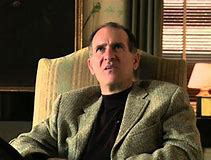
'There can be no doubt that amour propre is the most important concept in Rousseau’s Second Discourse. Rousseau tells us that there, more than once, and it is the key to answering the main question of the Discourse: where does social inequality come from?'
'What is there in human psychology that motivates us to seek superiority over others?'
'One aim of Rousseau’s theodicy is to demonstrate that the source of evil lies not in God, nor in his creation (nature), but in the human will: “Everything is good as it leaves the hands of the author of things; everything degenerates in the hands of man.”'
'His critique of inequality is consequence based: social inequalities are illegitimate when they pose systematic obstacles to human freedom, virtue, happiness, and to social peace.'
'The sexist (and misogynist) character of Emile is undeniable. When dealing with that text I tried to focus on very general principles of education that can be abstracted from Rousseau’s specific views on gender difference. Many readers, especially some feminists, deny that such a strategy is feasible.'
'Obviously, Fichte was inspired by Rousseau, and the radical left-wing slant of his social and political theory is a result of that inspiration.'
Fred Neuhouser is a specialist in 19th-century German Philosophy; Social and Political Philosophy. Here he discusses Rousseau, amour propre and social inequality, amour propre and theodicy, Rousseau and divine purpose and providence, the irrelevance of psychology for his criticism of amour propre, whether Rousseau thought that freedom and social harmony could be reconciled, influences on Rousseau, Emile, why his Second Discourse still has relevance, genealogy, Fichte's theory of subjectivity, Fichte and self determination and connections between Hegel, Fichte and Rousseau.
3:AM: What made you become a philosopher?
Fred Neuhouser: I grew up in a Mennonite family on a small farm in the Midwest. My parents never went to college (and my father never finished high school). The only intellectual pursuit I knew as a child was interpretation of the Bible. My grandmother gave me a Bible for my sixth birthday, and I began on the next day to read it from cover to cover. There was a lot I didn't understand (and a lot that was boring), but I kept at it and read it constantly for the next eight years or so. Any philosophical discussion I took part in was in conjunction with Bible study in church: Are we predestined with respect to salvation? If not, how is that compatible with God's omniscience? If God knew that most humans would end up in hell, why did he create us in the first place? Why is it a sin to dance, play cards, drink alcohol, and go to the movies?
When I arrived at college, I didn't know what philosophy was, but I knew that I wanted to take a course in it. I was soon hooked. I remember the very moment in which I realized I wanted to dedicate myself to philosophy. It was while reading Kant's Prolegomenafor a history of modern philosophy class and being thrilled by the transcendental project of establishing the necessary conditions for the possibility of experience!
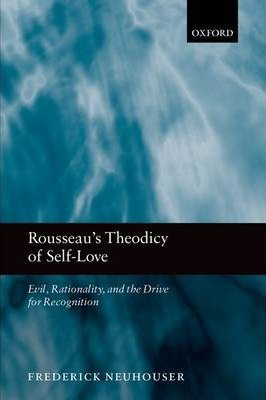
3:AM: You claim that for Rousseau amour propre is the most consequential feature of our species. Yet he invokes a whole host of other phenomena in his work – pity, imagination and amour de soi– and the Social Contractnever mentions it. Why are you so convinced that your interpretation is right here, that it is distinct from amour de soi because of what you call its ‘relative features’?
FN: There can be no doubt that amour propre is the most important concept in Rousseau's Second Discourse.Rousseau tells us that there, more than once, and it is the key to answering the main question of the Discourse: where does social inequality come from? Or: what is there in human psychology that motivates us to seek superiority over others? And he says pretty directly there, too (in Note 13), that it's amour propre's relative character that distinguishes it from the other form of self-love, amour de soi. (Amour propre is relative to others because it compares one's own standing with that of others and because what it seeks is standing in the eyes of others.) Moreover, amour-propre, unlike pity and amour de soi, is said to distinguish humans from other animal species. Amour proprealso plays a major role in Emile, especially in Book IV, where one of the main tasks of Emile's education consists in forming his amour propre so that he seeks, for the most part, equality with, rather than superiority over, other humans. It's true that the Social Contract doesn't mention amour propre, but if one reads that text together with the Discourse on Political Equality, it becomes clear that citizenship in the just republic also depends on how the amour propre of citizens is formed: they must be educated so as to seek fundamental equality with others (in political matters) and to seek recognition from others by contributing positively to political life.
3:AM: How should we understand the notion of theodicy when linked with amour propre– in particular your claim that it's not wholly bad – was it Kant who originally noted this connection between it and theodicy, and how were Augustine and Hobbes important for Rousseau’s thinking regarding this ‘useful but dangerous instrument’, as he calls it in Emile?
FN: The link between amour propre and theodicy is pretty clear already in Rousseau; Kant, as an intelligent reader of Rousseau, noticed this, but he is not responsible for first making that connection. One aim of Rousseau's theodicy is to demonstrate that the source of evil lies not in God, nor in his creation (nature), but in the human will: "Everything is good as it leaves the hands of the author of things; everything degenerates in the hands of man." If evil enters the world only as the work of human beings, then God's creation remains faultless. God is vindicated with respect to the existence of evil, and that is the central question of Christian theodicy. Moreover, as I argue in my interpretation of Rousseau, the very aspect of human psychology that explains how evil enters the world, amour propre, contains, when properly educated and exercised in the appropriate social conditions, the potential to allow humans to avoid the same evils that amour propre tends to generate: "Let us try to draw from the evil itself the remedy that should heal it." That the evil contains the potential to heal itself could be understood as a (very weak—see question 5) version of divine providence, or at least beneficence.
Rousseau is certainly thinking of Augustine when he absolves God of the responsibility for evil, but he adds an important twist to his predecessor's account of the same: for Rousseau evil does not enter the world through human sin but as a result of contingent events, including free human actions, whose evil consequences no one foresees or intends. By far the most important respect in which Rousseau is influenced on these matters by his predecessors lies in his appropriation of the connection drawn by Augustine between sin and pride and of Hobbes's claim that glory is a major cause of the state of war that characterizes the state of nature.
3:AM: Why do you say that his theory of amour propre is properly thought of as a theodicy, and did he think private property, material dependence and social inequalities were part of the evils it helped explain? Is Nature not the source of these things then?
FN: Rousseau clearly believes that that private property, especially in land, is a source of the evils of modern society, but he argues that property itself depends on many prior conditions. One of these, I believe, is amour propre itself because property can serve as a an external embodiment of oneself that exists for others and commands their respect or esteem. (There is even an etymological connection between the words amour propre and propriété.) The same is true of social inequalities: amour propre is what explains why inequality is sought out by humans. Of course, Rousseau recognizes that humans, like all animals, are needy creatures in virtue of their biological nature, but his thesis—convincing to me—is that the vast majority of our dependence-creating needs are not purely biological but socially constructed needs that have some substantial relation to the desire of amour propreto be thought well of by others: the clothing, cars, houses, and fortunes that we spend our lives working for would hardly be of value to us if we sought only to satisfy our purely biological needs!
3:AM: He didn’t see the redemptive power of amour propreas evidence of divine purpose, did he? Can you say how his notion of redemption was conceived in this light – and his notion of evil?
FN: It's not very clear to me how seriously Rousseau takes the notions of providence and divine purpose. He refers to them—perhaps to avoid the censure that in the end he couldn't escape—but I don't think they play a large role in what in his work is most important to him. It's hard to reconcile divine providence with the unmistakably pessimistic tone of the Second Discourse and of his philosophy more generally. (That pessimism is clear not only in the Second Discourse but also in Julie and Reveries of a Solitary Walker.) A social life that encourages freedom, virtue, happiness, and peace is possible for us, but highly unlikely. (As many readers have noted, even the Social Contract and Emile emphasize the unlikelihood that the redemptive possibilities open to us will in fact be realized.) Of course, that the world humans generally inhabit is a fallen world isn't a result of God's doings but of ours, but if there were such a thing as divine providence, it seems unlikely that he would have made the obstacles to our redemption so forbidding. And Rousseau is uninterested in the possibility that a world outside this one—an afterlife, for example—might make up for all the woes we know on earth.
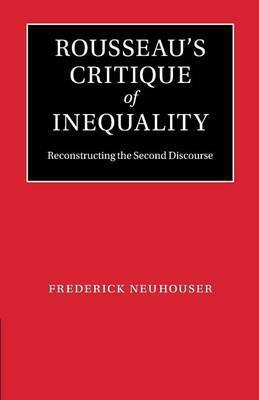
3:AM: Did he think inequality was ever justified given its source in amour propre, and why does he think it’s such a stubborn feature of society?
FN: The fact that social inequality has its psychological source in amour propre is irrelevant to Rousseau's grounds for criticizing it. His critique of inequality is consequence based: social inequalities are illegitimate when they pose systematic obstacles to human freedom, virtue, happiness, and to social peace. Yet classifying Rousseau as a consequentialist is potentially misleading since he isn't interested in maximizing freedom, virtue, or happiness but rather, in the tradition of social contract theory, in establishing the conditions under which eachcitizen can achieve those values. Essentially, when social inequality doesn't rule out freedom, virtue, and happiness for each, Rousseau has no criticism of it. He wants to bring the rich and poor as close together as possible, for example, but not to eliminate differences in wealth altogether. Of course, the good social world envisioned by Rousseau will be much more egalitarian than the modern societies we know, but limited forms of inequality will remain.
3:AM: Why was Rousseau so confident that there was no necessary problem reconciling freedom with social harmony – did he underestimate the problem?
FN: I think Rousseau wasn't so confident that freedom and social harmony could be reconciled. His pessimism flows from his conviction that the conditions under which this is possible are extremely difficult to produce. In fact, he worked very hard to demonstrate that the obstacles to freedom and social harmony don't lie in nature, including human nature. This places the responsibility for bringing about those things on humans rather than God, but it doesn't mean that humans are likely to succeed in that task. If anything, Rousseau overestimated the conflict between freedom and social harmony. The problem, as he sets it up, is much more difficult to solve than, for example, the problem as treated by Locke and Kant.
3:AM: Some have thought your reading of Rousseau makes him more like Hegel, Smith or Freud. Is it because you’re wanting to emphasize the role Rousseau has on thinkers like Kant, Fichte, Hegel, Marx and even Nietzsche – and why do you think your reading isn’t a distortion ignoring the influence of Stoics, Machiavelli, Plato and Montesquieu?
FN: It's true that I sometimes rely on Hegel, Smith, and Freud in reconstructing Rousseau's position. But both Hegel and Smith appropriated a lot from Rousseau, and some of what they did with that legacy can be described as thinking with Rousseau about certain issues he left underdeveloped. (Smith's thinking about how what Rousseau called amour propre might be crucial to the development of moral subjectivity is one example of this.) I don't know how much Freud was influenced by Rousseau, but Book I of Emile relies on Freudian principles (or something like object-relations theory) to explain the challenges of infant development. All of this carries with it the danger of losing sight of what is specific to Rousseau, but I hope that my use of his successors' theories doesn't reduce him to one (or all) of them but helps instead to bring out the plausibility and force of views that Rousseau himself was in the process of developing.
Yes, Rousseau was influenced by many other thinkers as well—among them Plato, the Stoics, and Montesquieu—but I chose to focus on Hegel, Smith, and Freud (and I would add Marx to this list) because they are most relevant to the specific problem I focused on in my book: amour propre, inequality, and the conditions of rational social life.
3:AM: In Emile Rousseau writes: ‘one must choose between making a man or a citizen’. What has he in mind here regarding the education of citizens, and what’s the relation between that education and the domestic type? (And what are we to make of the sexism embedded in this?)
FN: When people cite that quotation from Emile, they almost always fail to complete Rousseau's sentence: "one must choose between making a man or a citizen, for one cannot make both at the same time." Emile's education as a man takes up the first four books of this text and precedes in time his education as a citizen in Book V. Rousseau is explicit about the fact that Emile isn't to be educated to be a solitary individual but to live within society, where that includes being a citizen. (In Book V Emile's tutor gives him an abridged version of the Social Contract to prepare him for his entry into the state.) The reason the two educations can't be accomplished simultaneously is that the principles of each are in conflict with one another. The issues are complex here—I have an entire paper on precisely this question—but the fundamental tension is that Emile's domestic education trains him to be independent of others in variety of ways, but as a citizen and social member Emile must acknowledge his dependence on others and conceive of himself, not as an isolated individual, but as a member of a group who takes the good of the whole to be his own and is necessarily inserted into the dynamics of recognition—another form of dependence—that social life inevitably brings with it.
The sexist (and misogynist) character of Emileis undeniable. When dealing with that text I tried to focus on very general principles of education that can be abstracted from Rousseau's specific views on gender difference. Many readers, especially some feminists, deny that such a strategy is feasible. This is a question that deserves to be debated. But one shouldn't simply assume that Rousseau's misogynism infects every aspect of his view. Instead, one has to show where and why Emile's domestic education depends on standing in relation to a subordinate Sophie.
3:AM: We’re in a context where inequalities are rife: why might understanding Rousseau’s Second Discourse help us understand this given that so much time has passed and societies are very different now from what they were when Rousseau was writing? Does he still have contemporary relevance?
FN: Undergraduates who encounter the Second Discourse for the first time have no difficulty recognizing its continuing relevance. Of course, Rousseau's social world was different in many ways from ours, but I don't think the dynamics of Facebook or the unimaginably high rates of inequality in wealth that we now know are much different from the world he describes so forcefully in the second half of the Discourse. I don't think Rousseau gives us any concrete prescriptions for remedying the ills of the contemporary world—this wasn't his main concern even for his own time—but he does give us a kind of orientationfor beginning to think about how we might change our own world, that is, a sound account of the various factors that make social inequalities difficult to avoid and of what dangers those inequalities pose.
3:AM: Does Rousseau fatally mix up normative and non-normative issues when discussing inequality – and what’s his work to do with genealogy? Is he doing something like Nietzsche did with morals, for example?
FN: Rousseau does call the Second Discourse a genealogy—it tries to tell us where social inequalities come from—but, like Nietzsche's Genealogy of Morals, it's not concerned with origins in a straightforward sense of the term. Although the two genealogies have many differences, I think that Nietzsche was deeply influenced by Rousseau on this matter, even though his explicit references to Rousseau are almost always critical. Both genealogies have "de-naturalizing" ambitions—they reveal the human-made character of phenomena normally taken to be natural or merely given—and both are heavily invested in giving psychological accounts of their subject matter. And both emphasize the contingent nature of the developments in question. The connection between uncovering the origins of a thing and subjecting it to a normative critique is very complex in both Rousseau and Nietzsche, but on this score my suspicion is that they have rather different positions. In Rousseau's Critique of Inequality I argue that Rousseau doesn't mix up normative and non-normative issues illegitimately, although it can seem that he does, because both parts of his position are articulated in a theory of human nature.
In other words, Rousseau's account of human nature can be divided into a normative and a non-normative part. The non-normative part tells us about the basic capacities and passions of all human beings—amour de soi, pity, amour propre (for humans regarded as living in society), perfectibility, and free will—and the normative part lays out a vision of the human good that includes non-relative well-being, harmonious social relations, satisfying recognition, full human development, and freedom. Obviously, these goods have some connection to his non-normative account of human nature: our amour de soisets us up to purse our non-relative well-being; our amour propre sets us up to seek recognition; and so on. I don't think this combination of the normative and non-normative is necessarily incoherent or fallacious, but it's true that Rousseau assumes a teleological picture of human nature such that understanding how we are in fact constituted as humans is relevant to determining what our good consists in. Like purely biological organisms, humans are "by default" set up to pursue what is good for them, but as soon as opinion, will, and imagination enter into our understanding of what we want, this natural disposition to achieve our good is easily altered into desires for precisely those things that aren't good for us.
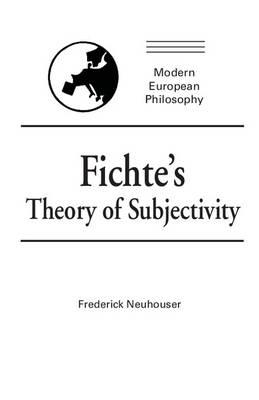
3:AM: Before you wrote your books about Rousseau you’d written about Fichte’s theory of subjectivity, amongst other things. How did Spinozism feed into Fichte’s project, in particular the version fed to him by Jacobi, and how did that mix with Rousseau’s influence?
FN: This is a hard question! And others are more qualified to answer it than I. (My friend Birgit Sandkaulen, for example.) I personally don't think that Spinoza had a very deep influence on Fichte, but your question asks about Spinozism, not Spinoza, as conveyed to him through Jacobi. To the extent that I know about this, I would say that Spinozism was influential on the young Fichte, primarily with respect to what Fichte at the time understood as the irreconcilable tension between reason (think of the principle of sufficient reason) and freedom. But Fichte's early encounter with Kant's practical philosophy changed all that and offered Fichte an opportunity to reconcile freedom and reason.
3:AM: How does Fichte conceive of self-determination and avoid recourse to a ‘two-worlds’ view that would require an unknowable noumenal self?
FN: Fichte changed his positions many times over the years, but his view in the Sittenlehre, as I understand it, is that self-determination is determining one's power of choice (Willkür) in accordance with a conception of one's essential nature. Self-determination is determining yourself to act in accordance with what you take your essential nature to be. I believe that Fichte wants to follow Kant in the sense that 'essential nature' is given a formal and universal interpretation—my essence is the same as yours—but it is also not identical to the bare idea of the autonomous legislator that Kant appealed to. If self-determination is described in this way—determining oneself to act in accordance with one's self-conception—it's hard to see why two worlds are necessary. Kant is pushed towards positing two worlds only because he thinks self-determination requires metaphysical freedom (independence from the causal order) and he can't reconcile this with the view of nature established in the First Critique. I suppose I'm coming close to saying that the best interpretation of Fichte's view pushes him in the direction of compatibilism.
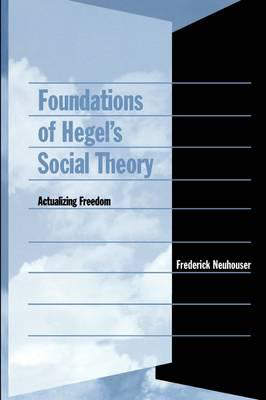
3:AM: How does your reading of Rousseau influence your reading of Hegel’s social theory? Does amour propre help make sense of the normative standards underlying its vision of the rational social order that Hegel presents, alongside a Fichtean influenced notion of freedom?
FN: It's very clear to me that Hegel's theory of recognition, of both its positive potential and its dangers, came from appropriating Rousseau's theory of amour propre. The idea that a central feature of a rational social order is that it offers its members various forms of satisfying recognition, both universal and particular, is a result of Hegel taking Rousseau ideas several steps further than he himself did and adapting them to the modern (19th-century) social world. Hegel also makes the idea of recognition much more central to his conception of practical agency than does Rousseau. Whereas as Rousseau often thinks of recognition in terms of someone holding good "opinions" of someone else, Hegel's conception of recognition is tied more closely to agency and normative commitment. For Hegel, my recognizing another is always bound up with committing myself to treat the other in a matter befitting of what I take him to be.
Obviously, Fichte was inspired by Rousseau, and the radical left-wing slant of his social and political theory is a result of that inspiration. Rousseau's conceptions of freedom—both civil and moral freedom—are evident in Fichte's Foundations of Natural Right. Fichte also presumably learned from Rousseau that material dependence that results from asymmetric social relations is an important source of domination. In general, however, I would say that Hegel is deeper in his appropriation of Rousseau than Fichte. Perhaps this is because I find Fichte's Foundationsan incoherent book that tries, not always successfully, to bring together a number of historical influences.
3:AM: And finally, are there five books you could recommend that would take us further into your philosophical world?
FN:
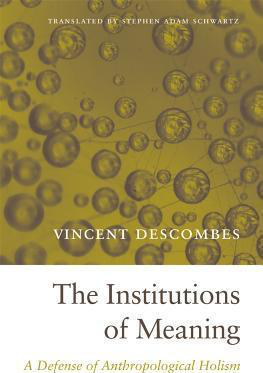
Vincent Descombes, Institutions of Meaning
Rahel Jaeggi, Alienation
Émile Durkheim, The Elementary Forms of Religious Life
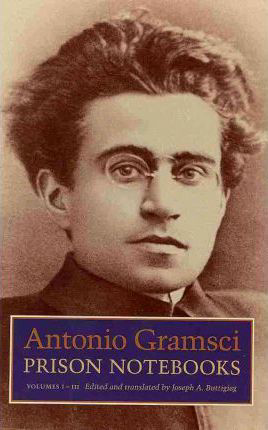
Antonio Gramsci, The Prison Notebooks
Luther's translation of The Holy Bible
ABOUT THE INTERVIEWER
Richard Marshall is still biding his time.
Buy his new book here or his first book here to keep him biding!
End TimesSeries: the first 302